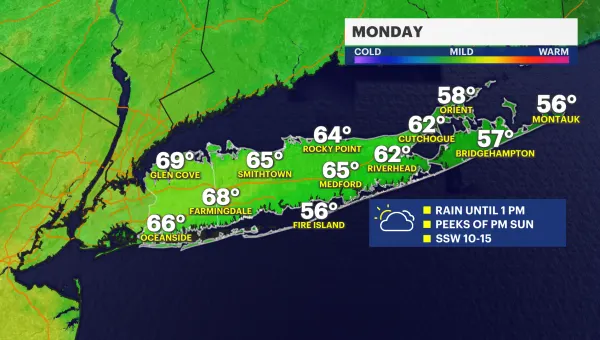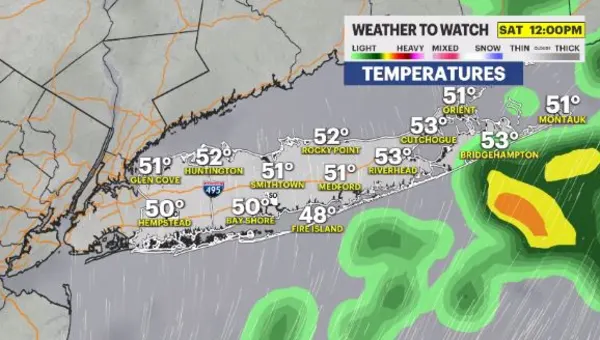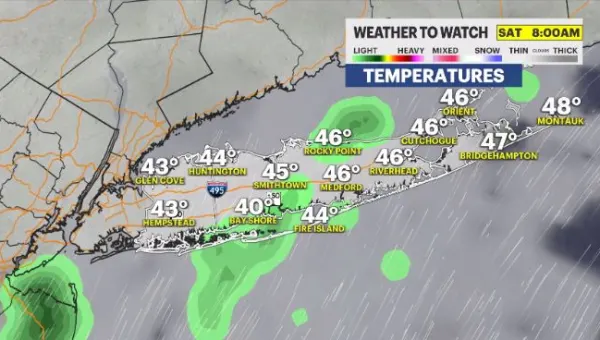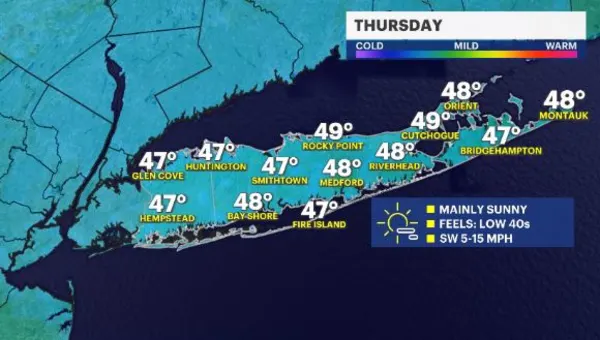It's cold water safety awareness week! What you need to know.
April 12-16 is cold water safety awareness week. Find out how you can stay safe.
Apr 12, 2021, 6:23 PM
•
Updated 1,130 days ago
Share:
More Stories
1:40

Blood drive held in honor of former Patchogue fire chief exceeds expectations
2h ago0:30

Police: Deer Park teen charged after making threats, bringing BB gun to Frost Middle School
2h ago2:11

Commack man takes stand in civil trial claiming he was strip-searched by Suffolk police
2h ago
New York Rangers beat Carolina Hurricanes 5-3 to advance to Eastern Conference Final
3h ago0:38

Environmental experts come together to address water concerns on Long Island
4h ago2:07

Nassau County doctor convicted of illegally prescribing around 93,000 mg of oxycodone to 1 patient
4h ago1:40

Blood drive held in honor of former Patchogue fire chief exceeds expectations
2h ago0:30

Police: Deer Park teen charged after making threats, bringing BB gun to Frost Middle School
2h ago2:11

Commack man takes stand in civil trial claiming he was strip-searched by Suffolk police
2h ago
New York Rangers beat Carolina Hurricanes 5-3 to advance to Eastern Conference Final
3h ago0:38

Environmental experts come together to address water concerns on Long Island
4h ago2:07

Nassau County doctor convicted of illegally prescribing around 93,000 mg of oxycodone to 1 patient
4h ago
Spring is here, and many are gearing up for outdoor activities and summer plans.
But while the weather is warming up quickly, our bodies of water are not - which can make this time of year extremely dangerous as we begin to put boats back in the water, kayak, and go fishing.
Obviously, no one is voluntarily going swimming this time of year, polar plungers aside. But for many, warmer air leads to a closer proximity to waterways, which can increase the odds of accidental submersion.
- Turbulent surf can overturn kayaks and fill small boats.
- People can fall off boats, docks, or jetties.
- Waves can pull beach walkers into the water.
Most of our local water temperatures are still in the 40s, but believe it or not anything colder than 70 degrees can be considered dangerous. Water temperatures typically don't rise above 50 degrees until early May, above 60 degrees until late May to early June, and above 70 degrees until July. Body heat can be lost four times faster in cold water than in cold air, and any immersion in water below 50 degrees runs the risk of Cold Water Shock.
The signs of Cold Water Shock are:
- Gasping for air, rapid breathing or hyperventilating
- A sudden spike in heart rate and blood pressure can cause heart failure and stroke for vulnerable people.
- Cognitive impairment such as immediate panic, fear or stress reaction that impairs clear thinking and decision making.
Roughly 20% of those who fall into cold water die in the first minute due to shock. Without some sort of flotation device and a dry suit, survival of more than 5 minutes is unlikely. Not great odds.
Another possibility of cold water immersion is hypothermia. All hypothermia means is a low body temperature, clinically defined as anything below 95°F. 60-70 degree water may sound warm enough, but it can take as little as 30 minutes for an adult to lose dexterity and as little as 2 hours to become unconscious in that range of water temperature. Naturally, colder water will reduce these times even further.
From 2010-2020, there were 219 recreational boating deaths in our Tri-state waters, many of which were presumed from cold water drowning. Let's reduce those numbers! If you plan to be near the water in the coming months, closely monitor the weather and water temperature before you go out - our News 12 Weather Team is great for that! Also, make sure to dress for the water temperature, NOT the air temperature! And lastly, always wear a life jacket. We'll have more information on that one for National Safe Boating Week in May.





